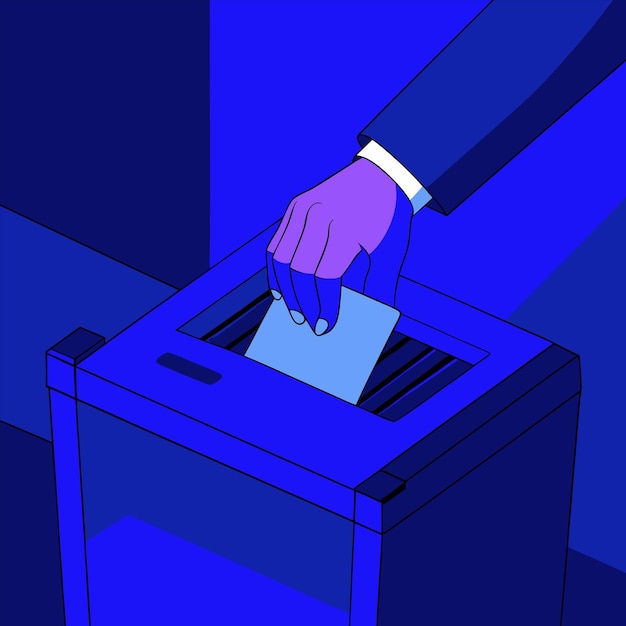Super PACs and the 2025 Elections: Impact and Influence

Super PACs are political committees that can raise and spend unlimited amounts of money to support or oppose political candidates, playing a significant role in shaping election outcomes through independent expenditures like advertising and voter mobilization.
Understanding the role of Super PACs in the 2025 elections: understanding their influence is crucial for every informed citizen who wishes to know the real impacts of money in politics and the potential outcomes of the next election cycle.
What are Super PACs? A Detailed Explanation
Super PACs, officially known as independent expenditure-only committees, have become a significant force in American elections. These entities operate outside the direct control of political campaigns, yet they can exert substantial influence on election outcomes.
Defining Super PACs
Super PACs emerged following the 2010 Supreme Court case *Citizens United v. Federal Election Commission*. This ruling paved the way for the creation of organizations that could raise and spend unlimited amounts of money on political advocacy, as long as they did not directly coordinate with candidates or political parties.
Key Differences from Traditional PACs
Unlike traditional political action committees (PACs), Super PACs are not subject to contribution limits. Traditional PACs typically donate directly to candidates’ campaigns, but their contributions are capped at \$5,000 per candidate per election. Super PACs, conversely, focus on independent expenditures, such as television ads, online campaigns, and voter mobilization efforts, and can accept unlimited donations from individuals, corporations, and unions.
- Unlimited Contributions: Super PACs can accept unlimited donations from various sources.
- Independent Expenditures: Funds are used for independent activities, not direct contributions to campaigns.
- No Coordination: Legally prohibited from coordinating directly with candidates or parties.
Super PACs operate in a legally complex environment, often pushing the boundaries of campaign finance regulations. Their ability to raise and spend unlimited funds makes them powerful players in shaping public opinion and influencing election results. Understanding their structure and operational guidelines is essential for anyone tracking the influence of money in politics.

The Legal Framework Governing Super PACs
The legal framework governing Super PACs is rooted in a series of court decisions and regulations that define their permissible activities and limitations. Understanding these legal boundaries is important for gauging the scope and impact of Super PAC operations.
Citizens United and its Aftermath
The *Citizens United* ruling was a watershed moment that reshaped campaign finance law. Previously, corporations and unions faced significant restrictions on independent expenditures. The Supreme Court’s decision held that these restrictions violated the First Amendment’s guarantee of free speech, leading to the rise of Super PACs.
FEC Regulations and Guidelines
The Federal Election Commission (FEC) is responsible for enforcing campaign finance laws and regulations. While Super PACs can accept unlimited contributions, they must still adhere to certain disclosure requirements. They are required to report their donors and expenditures to the FEC, providing a level of transparency, although the sources of funds can sometimes be difficult to trace due to the use of shell corporations and other methods.
- Disclosure Requirements: Super PACs must disclose donors and expenditures to the FEC.
- Independent Expenditure Rules: Spending must be independent and not coordinated with campaigns.
- Legal Challenges: The regulatory landscape is continuously challenged and evolves with new court decisions.
The legal framework surrounding Super PACs is constantly evolving, shaped by ongoing legal challenges and regulatory interpretations. This dynamic environment makes it crucial for those involved in or observing campaign finance to stay informed about the latest developments and their potential implications for elections.
Super PACs’ Influence on Campaign Messaging
Super PACs exert considerable influence on campaign messaging through their ability to fund extensive advertising and communication strategies. These independent expenditures can shape voter perceptions and influence election outcomes.
Crafting Persuasive Narratives
Super PACs often focus on crafting persuasive narratives designed to resonate with specific voter segments. These narratives can highlight a candidate’s strengths or weaknesses, or attack an opponent’s record. The messaging is typically tailored to maximize emotional impact and drive voter turnout.
Targeted Advertising and Media Campaigns
With access to substantial funds, Super PACs can launch targeted advertising and media campaigns across various platforms, including television, radio, and digital media. They use sophisticated data analytics to identify and target specific voter demographics with tailored messages.

The impact of Super PAC messaging can be significant, particularly in closely contested races where a well-crafted ad campaign can sway undecided voters. However, the accuracy and fairness of Super PAC advertisements are often debated, as these groups are not always subject to the same scrutiny as candidate campaigns.
In conclusion, Super PACs wield influence over campaign messaging, shaping public perception and voter behavior using the narratives they create and the targeted advertising they employ.
Case Studies: Super PACs in Recent Elections
Examining specific case studies from recent elections can provide valuable insights into how Super PACs operate and the impact they have on electoral outcomes. These examples illustrate the diverse strategies employed by Super PACs and their effectiveness in different contexts.
The 2012 Presidential Election
In the 2012 presidential election, Super PACs played a prominent role, with groups supporting both Barack Obama and Mitt Romney spending heavily on advertising and voter mobilization. For example, Restore Our Future, a Super PAC supporting Romney, spent tens of millions of dollars on television ads attacking Obama’s economic policies. Priorities USA Action, supporting Obama, countered with ads highlighting Romney’s business record at Bain Capital.
The 2016 Presidential Election
The 2016 presidential election saw even greater Super PAC involvement, with groups supporting candidates across the political spectrum. Right to Rise USA, supporting Jeb Bush, spent heavily in the Republican primaries. Correct the Record, supporting Hillary Clinton, focused on defending Clinton’s record and attacking Donald Trump. The election demonstrated the power of Super PACs to influence primary contests and general elections alike.
- Restore Our Future: Supported Mitt Romney in 2012, focusing on economic policy critiques.
- Priorities USA Action: Supported Barack Obama in 2012, highlighting Romney’s business record.
- Right to Rise USA: Supported Jeb Bush in 2016 Republican primaries.
Studying these case studies reveals the complex dynamics of Super PAC involvement in elections. While their impact can be significant, the success of Super PACs often depends on the broader political landscape and the effectiveness of their messaging strategies.
Ethical Concerns and Criticisms of Super PACs
Super PACs face numerous ethical concerns and criticisms, primarily related to transparency, influence, and the potential for corruption. These issues have sparked ongoing debate about the role of money in politics and the fairness of the electoral system.
Transparency Issues
While Super PACs are required to disclose their donors, the ultimate sources of funding can sometimes be obscured through the use of shell corporations and other financial mechanisms. This lack of transparency raises concerns about hidden influence and potential conflicts of interest.
Influence and Access
Critics argue that Super PACs give disproportionate influence to wealthy donors, who can use their financial contributions to gain access to politicians and shape policy decisions. This raises questions about whether elected officials are truly responsive to the needs of their constituents or primarily beholden to their large donors.
- Hidden Influence: Concerns about obscured funding sources.
- Disproportionate Access: Wealthy donors gain more access to politicians.
- Potential Corruption: The risk of quid pro quo arrangements.
The ethical concerns surrounding Super PACs have fueled calls for campaign finance reform and greater regulation of political spending. However, proponents of Super PACs argue that they are exercising their First Amendment rights to free speech and that restricting their activities would be unconstitutional. These debates are unlikely to be resolved soon, as they touch on fundamental questions about democracy and the role of money in politics.
The Future of Super PACs in US Elections
The future of Super PACs in US elections remains uncertain, as ongoing legal challenges and political debates continue to shape the regulatory landscape. Several potential scenarios could alter the role and impact of these organizations in upcoming election cycles.
Potential for Increased Regulation
Some policymakers advocate for stricter regulations on Super PACs, including measures to enhance transparency, limit contributions, and restrict independent expenditures. Such reforms could significantly curtail the influence of Super PACs and level the playing field for candidates who lack access to wealthy donors.
Technological and Social Media Shifts
As technology and social media continue to evolve, Super PACs are likely to adapt their strategies to reach voters through new platforms and channels. Microtargeting, personalized advertising, and digital voter mobilization are likely to become even more sophisticated, raising further questions about privacy and the potential for manipulation.
The future of Super PACs will depend on a complex interplay of legal decisions, regulatory actions, and technological developments. Whether these organizations will continue to play a dominant role in US elections or face increasing constraints remains to be seen.
| Key Point | Brief Description |
|---|---|
| 💰 Super PACs | Independent expenditure-only committees with unlimited fundraising. |
| ⚖️ Legal Framework | Established by Citizens United; FEC regulates disclosure. |
| 📣 Campaign Messaging | Influence voter perception via targeted advertising campaigns. |
| 🧐 Ethical Concerns | Transparency, influence, access, and potential conflicts. |
FAQs
▼
Super PACs can accept unlimited contributions from individuals, corporations, and unions, while regular PACs are subject to strict contribution limits. Super PACs also focus on independent expenditures, whereas regular PACs often contribute directly to campaigns.
▼
The Citizens United Supreme Court ruling in 2010 paved the way for the creation of Super PACs by asserting that corporations and unions have the same free speech rights as individuals, allowing them to spend unlimited money on political advocacy.
▼
No, Super PACs are legally prohibited from coordinating directly with political candidates or campaigns. Their expenditures must be independent, meaning they cannot work in tandem with a campaign’s strategy or messaging.
▼
The primary ethical issues involve a lack of transparency, the potential influence of wealthy donors, concerns about disproportionate access to politicians, and the risk of quid pro quo arrangements, undermining the fairness of the electoral system.
▼
Super PACs are required to report their donors and expenditures to the Federal Election Commission (FEC). This information is publicly available on the FEC’s website, providing insights into the financial activities of these groups.
Conclusion
In conclusion, Super PACs in the 2025 elections: understanding their influence requires a deep dive into their legal framework, their role in campaign messaging, and the ethical debates surrounding them. As these entities continue to evolve, staying informed about their activities and impact is essential for participating in a well-informed democratic process.
